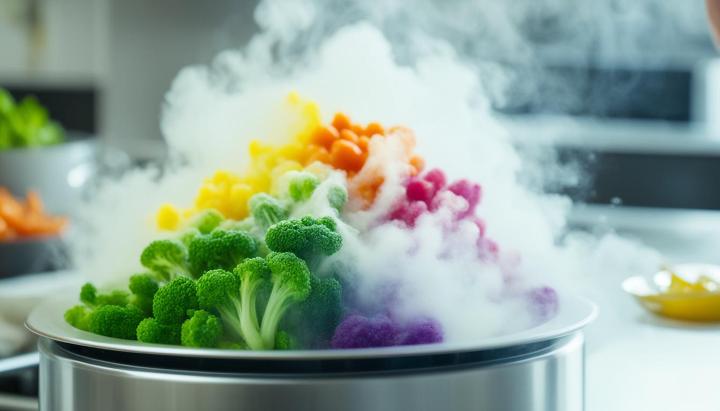Does Microwaving Food Destroy Nutrients? Truth Explained

Strong 8k brings an ultra-HD IPTV experience to your living room and your pocket.
🥦 The Real Impact of Microwaving Food on Nutrient Retention
🔍 Understanding Microwave Cooking
Microwave cooking has become a daily convenience in modern households. It's quick, efficient, and doesn't require pots or pans. But many people worry that microwaving food might lead to nutrient loss, especially in heat-sensitive nutrients like vitamin C, B vitamins, and antioxidants.
The question remains: Does microwaving food destroy nutrients, or is this just a myth?
🔬 What Happens to Nutrients During Cooking?
All cooking methods—whether it's boiling, frying, steaming, or microwaving—can lead to some level of nutrient breakdown. The degree of loss depends on several factors:
Temperature
Cooking time
Presence of water
Type of nutrient
Microwave cooking typically uses lower temperatures and shorter cooking times compared to traditional methods. This actually works in favor of nutrient retention.
💡 Microwaving Food vs. Other Cooking Methods
Let’s break down how microwaving compares to other common cooking techniques in preserving nutrients:
🥘 Boiling vs. Microwaving
Boiling vegetables can result in significant nutrient loss, especially water-soluble vitamins like vitamin C and B vitamins, which leach into the water. Since microwave cooking uses less or no water, it helps to retain these vitamins better.
🥦 Steaming vs. Microwaving
Steaming is generally considered one of the best methods for nutrient retention. However, microwaving with minimal water can offer similar benefits—sometimes even better due to the shorter cooking times.
🍳 Frying vs. Microwaving
Frying involves high temperatures that can degrade delicate nutrients. It also adds extra fat, which may not be desirable. Microwaving, on the other hand, doesn’t require oil and thus retains more nutrients while being healthier overall.
🧪 Focus on Key Nutrients
Different nutrients react differently to heat. Here’s how microwaving food affects some of the most commonly discussed ones:
🔹 Vitamin C
This vitamin is sensitive to heat and water. Studies show that microwaving vegetables retains more vitamin C compared to boiling or frying.
🔹 B Vitamins
B vitamins, like folate and B6, are also water-soluble and susceptible to heat. Since microwaving uses little to no water and minimal cooking time, it helps preserve these nutrients effectively.
🔹 Antioxidants
Many fruits and vegetables contain antioxidants that can break down when exposed to heat. Microwaving may reduce some antioxidants, but the loss is usually less than other high-heat methods.
🧴 Are Microwave-Safe Containers Important?
Yes, very much. Always use microwave-safe containers to avoid harmful chemicals leaching into food. Avoid plastic containers not labeled microwave-safe, and never use metal in a microwave.
Glass and BPA-free containers are the safest choices when it comes to reheating or cooking food in the microwave.
🕒 Tips to Minimize Nutrient Loss When Microwaving
Want to make the most of your microwave while keeping your food nutritious? Follow these simple tips:
Don’t overcook food; shorter cooking time preserves nutrients.
Use microwave-safe containers made of glass or ceramic.
Add minimal water, especially when cooking vegetables.
Cut food into even sizes for consistent heating.
Cover food with a lid or wrap to retain moisture and nutrients.
📊 Is Nutrient Loss in Microwaves a Myth?
In short, no, microwaving does not significantly destroy nutrients. In fact, it often retains more nutrients than boiling or frying. The efficiency of microwave cooking, combined with its shorter exposure to heat and reduced use of water, makes it a smart choice for nutrient retention.
✅ Final Thoughts: Is Microwave Cooking Healthy?
The myth that microwaves destroy nutrients is largely unfounded. If used correctly, a microwave can be one of the best tools to cook or reheat food without sacrificing much nutritional value.
So next time someone warns you about the dangers of the microwave, you’ll have science on your side. Microwaving food not only saves time but also helps you preserve those valuable vitamins, minerals, and antioxidants.
Note: IndiBlogHub features both user-submitted and editorial content. We do not verify third-party contributions. Read our Disclaimer and Privacy Policyfor details.



